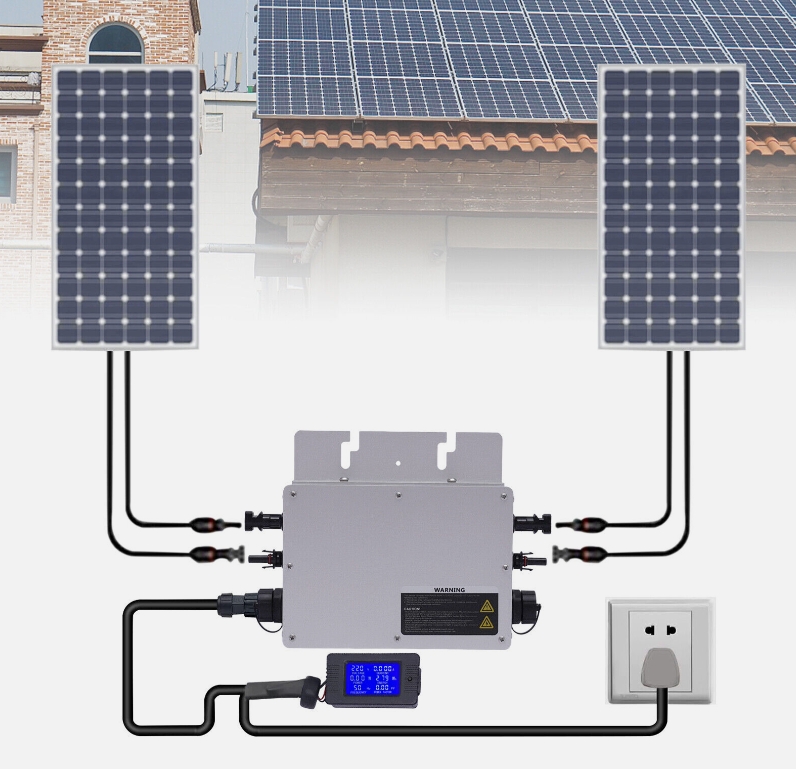Micro inverter is revolutionizing the way solar energy systems function, from the individual solar panels on a rooftop to the electrical power utilized in homes. Here’s a look at how micro inverter enhance solar energy systems:

1. Optimized Energy Conversion
- Direct Conversion: Each micro inverter is attached to a solar panel, converting the direct current (DC) generated by the panel into alternating current (AC) right at the source.
- Enhanced Efficiency: This direct conversion method minimizes energy loss that can occur when DC is transmitted over distances to a central inverter.
2. Maximized Panel Efficiency
- Individual Panel Optimization: Micro inverter allow each solar panel to perform independently, which means that the performance of one panel doesn’t affect others. This is particularly beneficial in situations where some panels are shaded or at different angles.
- Improved Energy Harvest: Even if one or more panels are partially shaded or dirty, the others can still operate at full capacity, ensuring a higher overall system efficiency.
3. Increased System Reliability
- No Single Point of Failure: In traditional systems, the failure of a central inverter can bring down the entire system. Micro inverter eliminate this risk as each panel operates independently.
- Durability: Micro inverter is generally more robust and have longer lifespans than central inverter.
4. Greater Flexibility in Installation
- Adaptable to Various Roof Layouts: The independent nature of micro inverter makes them ideal for roofs with multiple angles, orientations, or shading issues.
- Scalability: Adding more panels to a system is simpler, as each new panel just needs its own micro inverter.
5. Advanced Monitoring Capabilities
- Panel-Level Monitoring: Homeowners can monitor the performance of each individual panel, making it easier to identify and resolve issues.
- Real-Time Data: This detailed monitoring can lead to better maintenance, performance optimization, and understanding of energy usage patterns.
6. Safety Improvements
- Reduced High-Voltage DC Wiring: Since conversion to AC happens at the panel, there’s less high-voltage DC wiring, which reduces the fire risk associated with traditional systems.
- Electrical Safety: Micro inverter is generally safer to install and maintain due to the lower voltages involved.
7. Economic Benefits
- Increased Energy Production: Over time, the increased efficiency can lead to significant energy savings.
- Long-Term Investment: The longer lifespan and reduced maintenance needs can make micro inverter a cost-effective choice in the long run.
Conclusion
Micro inverter represent a significant step forward in solar technology, offering enhanced efficiency, reliability, flexibility, and safety. For homeowners and businesses looking to maximize their solar investment and adapt to specific site conditions, micro inverter provide a sophisticated and efficient solution. As solar technology continues to evolve, micro inverter is set to play a crucial role in the widespread adoption of renewable energy.
